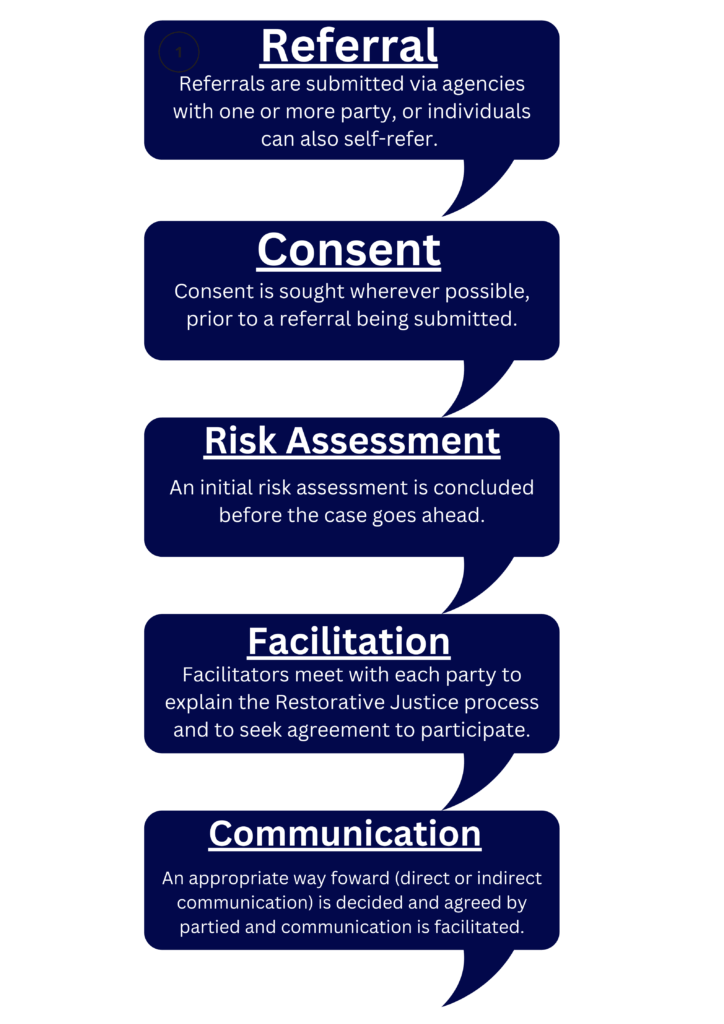Bedfordshire Police Headquarters
Bridgebury House, Woburn Road, Kempston, Bedfordshire, MK43 9AX
Bridgebury House, Woburn Road, Kempston, Bedfordshire, MK43 9AX

Restorative justice enables victims to meet or communicate with their offender to explain the real impact of their actions. It gives someone affected by crime the chance to have their say, explain what the effect was on them and to seek a direct explanation from the offender about what they did.
Through this the offender can begin to understand the effect of their behaviour and make amends. Restorative justice does not replace the criminal justice system, but helps to deal with the emotions and stress caused by crime, so the person harmed can move on with their lives.
If you’ve been a victim of a crime it’s likely to have been a deeply upsetting and unsettling experience. For many people restorative justice helps to get closure after a traumatic time. People who have participated in restorative justice have reported that it has been an empowering experience which allowed them to feel more in control of what happened to them.
Referral
Referrals are submitted via agencies with one or more party, or individuals can also self-refer.
Consent
Consent is sought wherever possible, prior to a referral being submitted.
Risk Assessment
An initial risk assessment is concluded before the case goes ahead.
Facilitation
Facilitators meet with each party to explain the Restorative Justice process and to seek agreement to participate.
Communication
An appropriate way forward (direct or indirect communication) is decided and agreed by parties and communication is facilitated.

QR code to LinkTree for additional resources:


Bedfordshire Police HQ
Bridgebury House
Woburn Road
Kempston
Bedfordshire
MK43 9AX
Tel: 01234 842064
© Bedfordshire Police & Crime Commissioner 2024 – All rights reserved